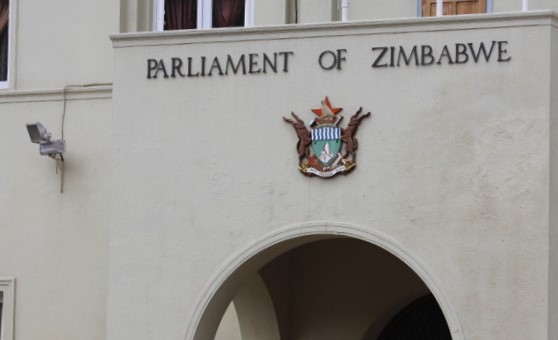Members of the Senate have called on the government to swiftly enact legislation that lays the groundwork for provincial and metropolitan councils to function as soon as possible.
This was raised during the Senate Wednesday while members were debating Senator Sesel Zvidzai’s motion to adopt a legal framework for the operation of provincial councils.
Zvidzai raised concerns that the elected provincial councils are unable to contribute to the national discourse, despite the cost of their election.
He argued that the delay in passing devolution legislation is contrary to constitutional mandates and hampers equitable development across provinces and called upon the Executive to expedite the enactment of the legal framework in accordance with Section 265 of Zimbabwe’s constitution.
Senator Ritta Ndlovu supported the motion and noted the contrast between the swearing in of local authorities and the absence of a similar process for provincial councils.
“My question is, when will this be done. It is very important to have provincial councils in place because they play a very important role in our communities. Also, it will assist the Government in revenue collection,” Ndlovu said.
Ndlovu said provincial councils could assist in bringing Government closer to the communities.
“With the government being closer to the people or communities, it will then make it easy for communities to get their documentation where they reside. This will improve and balance our gender representation as far as our legislative agenda is concerned,” said the senator.
Ndlovu stated that when it comes to selecting provincial administrators, the preference is to have administrators who have demonstrated an awareness of developmental objectives and indigenous languages, preferably from each province.
Echoing the same sentiments, Matabeleland South, Senator Meliwe Phuti, highlighted the significance of provincial councils as a crucial foundation currently lacking in Parliament.
“I want to say that a provincial council is good for us, particularly for myself as an individual. I come from Matabeleland South which is lagging behind in development and with such a proper backbone, you are able to stand and work. As Matabeleland South, we are going to benefit from mining because there will be devolution.”
Phuti said with the implementation of devolution, resources will be shared equally.
“Instead of baking my cake and celebrating the birthday in Harare, we can bake our cake in Matabeleland South and consume it there instead of Harare where our children will not benefit much. The cake should be baked and enjoyed by the people in the different provinces,” Phuti said.
The senator said it is disheartening that provinces such as Matabeleland South have minerals, but proceeds were taken to Harare.
“ We are facing a drought. We do not have water. We do not have dams. In Mangwe there is one big dam. Devolution and provincial councils are going to monitor whether dams are being put in such areas,” said Phuti
Phuti added that his constituency in Plumtree has three border posts – Maitengwe, Ramakwebane and Matsi in a 300km2 radius but was disappointed that workers, including those in menial jobs employed, were unable to speak the local language.
“They cannot speak Ndebele, Kalanga or other languages. On the same issue regarding our borders, it is difficult to travel to Botswana. Botswana is so near that you can throw a stone across the fence, but it is difficult to go to Botswana because we do not have devolution,” he said.
The senator said devolution is going to improve people’s lives.
“The other painful thing is that we do not have devolution but it is there in our Constitution and on paper but has not been implemented,” said Phuthi.
Despite conflicting viewpoints, Zanu PF Matabeleland South, Senator Richard Ndlovu praised the operationalisation of the Devolution Fund, which has helped to build critical infrastructure in several regions.
“It was not in existence but now we find that most clinics and schools that have been built were done using devolution funds. We need to appreciate the Government for that. The devolution fund is operational and has built a number of infrastructures. Zimbabwe is a rich country which is being eyed by so many people and that is the reason why we are facing so many challenges,” said Ndlovu.

